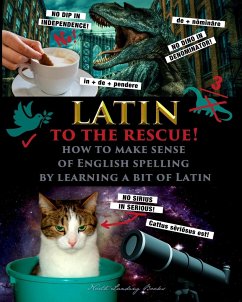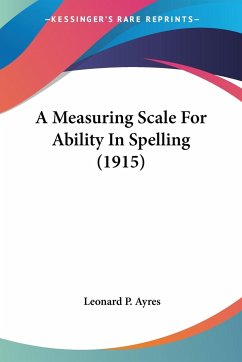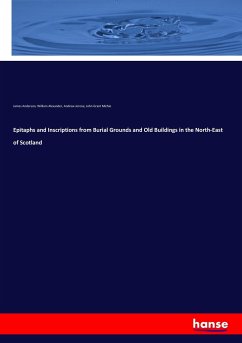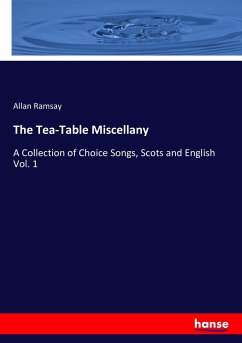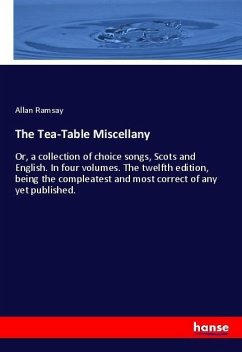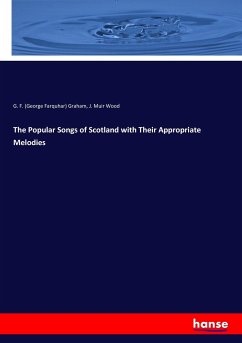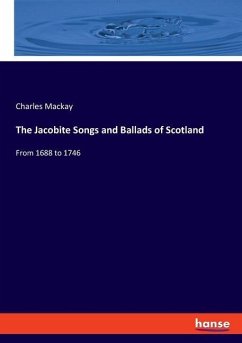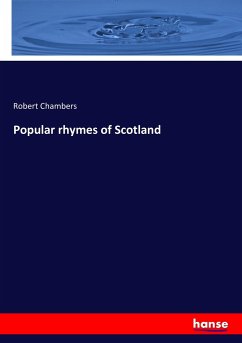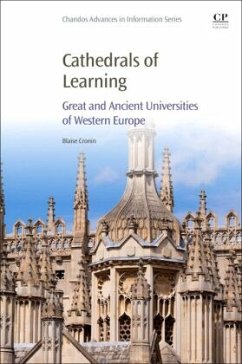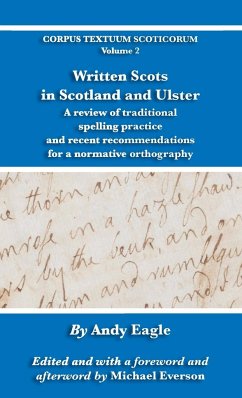
Written Scots in Scotland and Ulster
A review of traditional spelling practice and recent recommendations for a normative orthography
Herausgeber: Everson, Michael
Versandkostenfrei!
Versandfertig in 1-2 Wochen
30,99 €
inkl. MwSt.

PAYBACK Punkte
15 °P sammeln!
Historically Scots has never had a standard orthography in the sense that modern Standard English does. Recent written Scots, especially since the late 20th century, displays substantial orthographic diversity reflecting historical, regional, circumstantial, and idiosyncratic practices. That would seem to reflect a somewhat anarchic situation-but the literary record, especially in the 18th and 19th centuries, shows that was not always the case. This study begins with the linguistic reality, analysing the phonemes of Scots and the various graphs traditionally used for them. It then examines the...
Historically Scots has never had a standard orthography in the sense that modern Standard English does. Recent written Scots, especially since the late 20th century, displays substantial orthographic diversity reflecting historical, regional, circumstantial, and idiosyncratic practices. That would seem to reflect a somewhat anarchic situation-but the literary record, especially in the 18th and 19th centuries, shows that was not always the case. This study begins with the linguistic reality, analysing the phonemes of Scots and the various graphs traditionally used for them. It then examines the various proposals for refinement of Scots orthography which have been suggested since 1947 when the Scots Style Sheet was published. Comparing and contrasting traditional graphs with those proposals, Andy Eagle proposes a sound, natural-looking compromise, aiming toward an inclusive orthography that serves all dialects, and does not favour any one over any other. Corpus Textuum Scoticorum is a series presenting editions of language and literature of particular interest to Scotland. The series focuses on but is not limited to volumes dealing with the Scots and Scottish Gaelic languages.



